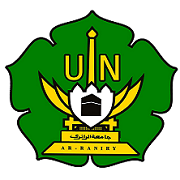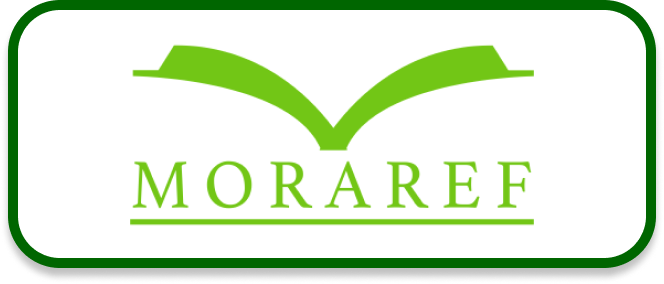-
- ARTICLE TEMPLATE
Zakat and Empowerment of the Bajo Tribe Fishing Community in Bone, South Sulawesi: Collaboration between BAZNAS and the Ministry of Religion
Abstract
The Bajo tribe is a traditional fishing community in Bone Regency, South Sulawesi, which faces the challenge of persistent poverty in various aspects. The National Zakat Amil Agency (BAZNAS) in collaboration with the Ministry of Religion has taken important steps to empower this community through educational values-based programs. This research aims to analyze the role of collaboration between BAZNAS and KUA in efforts to empower the coastal communities of the Bajo Tribe through the utilization of zakat. This research uses empirical legal methods using empowerment theory. Community development and empowerment aims to change community conditions for the better, in educational, economic, social, cultural and political aspects. Data was collected by means of in-depth interviews with BAZNAS, KUA, and the Bajo tribal community, while literature studies referred to relevant articles, books and research reports. The research results show that the collaboration between BAZNAS and KUA has contributed to changing the mindset of the Bajo Tribe in educating the Bajo Tribe community so that they improve spiritually, health and religious education. The challenges faced are the lack of realization of more massive program sustainability and the lack of active involvement of the community, stakeholders and the importance of realizing community empowerment through zakat environmental development in accordance with the BAZNAS RI program which is intended for community groups who experience economic, educational, health, spiritual and economic disadvantage welfare. Even though the results are not optimal, this contribution should be appreciated because it has had a significant impact on empowering the Bajo ethnic community on the Bone coast of South Sulawesi.
Keywords
Full Text:
PDFReferences
Journals and Books
Aksa, Retna, “Kehidupan Suku Bajo di Pulau Torosiaje, Sulawesi Selatan,” Jurnal Penelitian Budaya, 2018.
Al-Faruqi, Ismail, Al-Tawhid: Its Implication for Thought And Life Herndon, The International Institute of Islamic Thought,1992.
Aswita, W., “Arrangement of The Bajo Ethnic Fishermen Settlement Area Based on Ecology and Local Wisdom on The Coast of Bone Bay,” International Journal of Multidisciplinary Research and Studies 5, No. 6 (2022). DOI:10.33826/ijmras/v05i06.5.
Aziz, Moh. A., et.al., Dakwah Pemberdayaan Masyarakat: Paradigma Aksi Metodologi, Yogyakarta: PT Lkis Pelangi Aksara, 2009.
Badan Pusat Statistik, Statistik Pendidikan Agama Kabupaten Bone, Bone: BPS, 2021.
Bahri, Syamsul, “Modal Sosial Orang Bajo di Bajoe Kabupaten Bone Sulawesi Selatan,” Walasuji: Jurnal Sejarah dan Budaya 8, No. 1 (2017). DOI:10.36869/wjsb.v8i1.112.
Bahtiar, Eko, “SWOT Analysis of the Mempawah Regency Baznas Development Strategy in Collecting Zakat Funds,” Journal of Islamic Law 1, No. 1 (2020). DOI: https://doi.org/10.24260/jil.v1i1.12.
Beik, Irfan Syauqi and Arsyianti,. Measuring Zakat Impact on Poverty and Welfare Using CIBEST Model, Journal of Islamic Monetary Economics and Finance, 2016.
Daud, Muhammad, Sistem Ekonomi Islam: Zakat dan Wakaf, Jakarta: Universitas Indonesia, 1998.
Dewi, Chynthia Kusuma, “Pola Permukiman Suku Bajo di Wilayah Pesisir Kecamatan Konga Kabupaten Intan Jaya, Papua,” Jurnal Teknik Lingkungan 22, (2016).
Emzir, Metodologi Penelitian Pendidikan, Kuantitatif dan Kualitatif, Jakarta: Raja Grafindo Persada, 2013.
Faisal Faisal, et.al., “Strengthening Zakat Rules in Indonesia: A Legal Study of the Law on the Government of Aceh,” Samarah: Jurnal Hukum Keluarga dan Hukum Islam 7, No. 1 (2023). DOI: http://dx.doi.org/10.22373/sjhk.v7i1.13993.
Hannani Hannani, et. al., “Zakat for Mama Biang in Maluku, Indonesia: Ulama Opinion on Fīsabīlillāh in the Perspective of Islamic Legal Anthropology,” Samarah: Jurnal Hukum Keluarga dan Hukum Islam 7, No. 2 (2023). DOI: http://dx.doi.org/10.22373/sjhk.v7i2.17044.
J. W. Creswell, Penelitian Kualitatif dan Desain Riset: Memilih di antara Lima Pendekatan, Yogyakarta: Pustaka Pelajar, 2014.
Jahar, Asep Saepudin, “Bureaucratizing Sharia in Modern Indonesia: The Case of Zakat, Waqf and Family Law,” Studia Islamika 26, No. 2 (2019). DOI: https://doi.org/10.15408/sdi.v26i2.7797.
Muhajir, Islam in Practical Life, Sh. Muhammad Asyraf: Lahore, 1974.
Refnita, Desi, “The Mustahik Zakat in Various Dimensions of Fiqh in Era Society 5.0,” El-Mashlahah 11, No. 1 (2021). DOI: https://doi.org/10.23971/elma.v11i1.2285.
Robert. K. Yin, Studi kasus; Desain dan metode, Jakarta: Raja Grafindo Persada, 2009.
Safi, Louay M., “Islamic Law And Society,” The American Journal of Islamic Social Sciences, (1990).
Sahirman Sahirman, “Pemberdayaan Ekonomi Masyarakat Miskin Kecamatan Koto Tangah Oleh Rumah Zakat Kota Padang,” Jurnal al-Mizan 9, No. 1 (2022). DOI:10.54621/jiam.v9i1.278
Samad, Fauzan, et.al., “Strategy of Community Economy Empowerment Through the Management of Waqf Assets at The Baitussalihin Mosque in Ulee Kareng, Banda Aceh City,” Jurnal Sosiologi Dialektika Sosial 10, No. 1 (2024). DOI: https://doi.org/10.29103/jsds.v10i1.15440.
Satria, Arif, Ekologi Politik Nelayan, Yogyakarta: LKiS, 2019.
Sugiyono, Memahami Penelitian Kualitatif, Bandung: Alfabeta, 2015.
Suharto, Edi, Membangun Masyarakat Memberdayakan Rakyat, Bandung: Refika Aditama, 2005.
Syahbandir, Mahdi, et.al., “State Authority for Management of Zakat, Infaq, and Sadaqah as Locally-Generated Revenue: A Case Study at Baitul Mal in Aceh,” al-Ihkam: Jurnal Hukum dan Pranata Sosial 17, No. 2 (2022). https://doi.org/10.19105/al-lhkam.v17i2.7229.
Syamsu al-Din Muhammad ibn al-Khatib al-Syarbaini, Mugni Al-Muhtaj, Ma’rifah Ma’ani Al-Fadz Al-Minhaj, Juz I, Bairut; Dar al-Fikr: 1998.
Wahyu, Bima and Meri Yarni, “Fungsi Baznas Dalam Pengelolaan Zakat Di Provinsi Jambi Berdasarkan Undang-Undang Nomor 23 Tahun 2011,” Limbago Journal of Constitutional Law 2, No. 2 (2022). DOI:10.22437/limbago.v2i2.17231
Yahya, Imam, “Zakat Management in Indonesia: A Legal Political Perspective,” Ahkam 30, No. 2 (2020). DOI: 10.21580/ahkam.2020.30.2.6420.
Yusuf al-Qaradawi, al-Hulul al-Mustauradah wa Kaifa Janata ‘Ala Ummatina, Maktabah Wahbah: al- Wahbah: al-Qahirah, 1988.
Interviews
Interview H. Zainal Abidin, the Chairman of BAZNAS Bone Regency, September, 2023.
Interview with A. Jamilatullail, Amil Zakat BAZNAS Bone Regency, September, 2023.
Interview with H. Maharajuddin, Deputy Chair III of BAZNAS for the 2017-2023 period, Bone Regency, September, 2023.
Interview with Azizah, Tanete Riattang Timur KUA Extension Officer, Bone Regency, September 2023.
Interview with Ninca, Member of the Management of the al-Ikhlas Taklim Council of the Bajo Tribe, September 2023.
DOI: http://dx.doi.org/10.22373/ujhk.v7i2.24961
Refbacks
- There are currently no refbacks.
Copyright (c) 2024 Hukmiah Husain, Wardana Said, Muh. Darwis, Muh. Arafah, Hamsah Hasan

This work is licensed under a Creative Commons Attribution-ShareAlike 4.0 International License.
El-Usrah: Jurnal Hukum Keluarga has been indexed by:
















